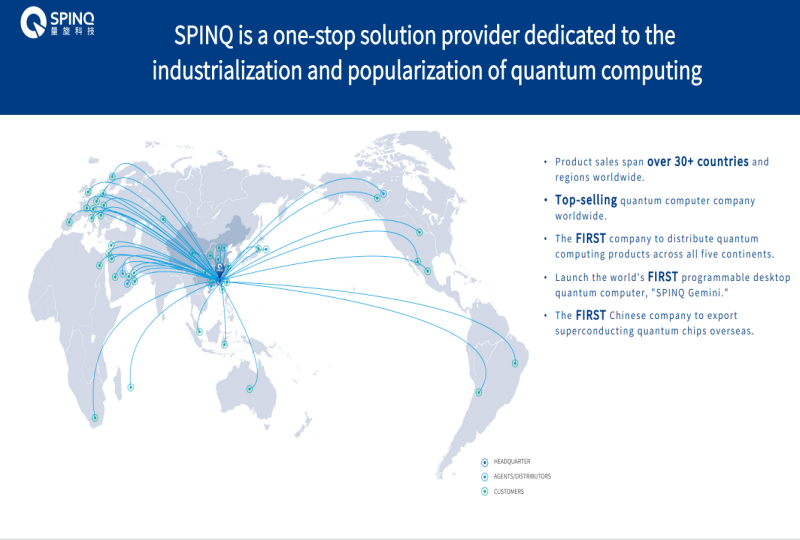Do Quantum Computers Exist in 2025? The Answer is Yes
2025.01.02 · Blog quantum advantagequantum readyquantum supremacy
Do Quantum Computers Exist Today?
Yes, quantum computers do exist today, but their development is still in the early stages. Various research institutions, technology companies, and startups have built experimental quantum computers.
Current Quantum Computers
Sycamore: In 2019, Google made headlines by achieving "quantum supremacy" with its Sycamore processor. This milestone demonstrated that a quantum computer could perform a specific task—sampling random numbers—faster than the world's most powerful classical supercomputer.
While this was a groundbreaking achievement, it was a narrow use case and doesn’t imply that quantum computers are ready for general-purpose computing.
Willow: In 2024, Google launched its Willow chip, a significant advancement in quantum hardware. Willow aims to enhance quantum computing capabilities with more stable and scalable qubits, offering improvements in coherence time and error correction.
It is part of Google’s broader effort to push the boundaries of quantum computing and make the technology more practical for a wider range of applications, including quantum algorithms and machine learning tasks.
IBM’s Quantum Systems
IBM has developed a series of quantum computers, including the IBM Q System One, which is available for cloud-based quantum computing services.
These machines are designed to allow researchers to explore quantum algorithms and improve quantum hardware, and they represent some of the most advanced publicly available quantum computing systems.
SpinQ Superconducting Quantum Computers

SpinQ is a leading quantum computer company dedicated to advancing the industrialization of quantum computing by providing comprehensive solutions for various industries.
The company specializes in developing and manufacturing superconducting quantum computers, and high-performance superconducting quantum processing units (QPUs). With its robust technological expertise, SpinQ has also built a powerful quantum cloud service to enable access to cutting-edge quantum computing resources.
In addition, SpinQ offers quantum education tools, including education-grade quantum computers, to empower universities and students in teaching and learning quantum computing, fostering the next generation of quantum technology talent.
SpinQ’s mission is to make quantum computing truly practical across industries such as finance, biomedicine, artificial intelligence, and beyond, driving innovation and transforming quantum computing from a laboratory concept into a productive tool for real-world applications.
Current Quantum Hardware Development
There are multiple approaches to building quantum computers. The most common are based on superconducting qubits, trapped ions, photonic qubits, and topological qubits. Each method has its advantages and challenges, such as stability, error rates, and scalability.
- Superconducting qubits (e.g., IBM, Google, SpinQ) use circuits that operate at near absolute zero temperatures to manipulate quantum states.
- Trapped ions (e.g., Honeywell, IonQ) manipulate ions using electromagnetic fields to create qubits.
- Photonic qubits (e.g., Xanadu) use light particles to represent quantum information.
- Topological qubits (e.g., Microsoft) are theorized to be more stable but are still under development.
Current Quantum Software and Applications
Many companies, like IBM, Microsoft, and startups like SpinQ, are working on developing quantum software platforms. These include tools for quantum programming and cloud-based quantum computing services.
It is noteworthy that SpinQ's quantum computing products have already achieved successful applications in fields such as quantum education, fintech, biomedicine, and artificial intelligence, setting a strong example for the industrialization of quantum technology.
Current Challenges Facing Quantum Computers
While quantum computers exist in a basic experimental form, several challenges must be addressed before they can be widely used in industry:
1. Scalability: Current quantum computers have only a limited number of qubits. For practical use, quantum computers will need to scale up to thousands or even millions of qubits.
2. Quantum Decoherence: Qubits lose their quantum state due to interactions with their environment, a phenomenon known as decoherence. Maintaining qubit coherence for longer periods is a critical hurdle.
3. Error Rates: Quantum systems are prone to errors, and managing these errors remains a significant challenge. Quantum error correction, as mentioned, is an area of intense research.
4. Temperature Requirements: Many quantum computers, especially those using superconducting qubits, require extremely low temperatures to function, which makes them expensive to build and maintain.
5. Practical Algorithms: While there are a few quantum algorithms that show promise, many others remain theoretical or require a much more advanced quantum computer to be useful.
Conclusion: The Road Ahead
Quantum computers do exist, but they are not yet fully ready for mainstream applications. We are still in the early phases of developing quantum hardware, algorithms, and error-correction techniques. Researchers and companies are making significant strides toward creating functional, scalable quantum computers, but much work remains to be done.
Featured Content






